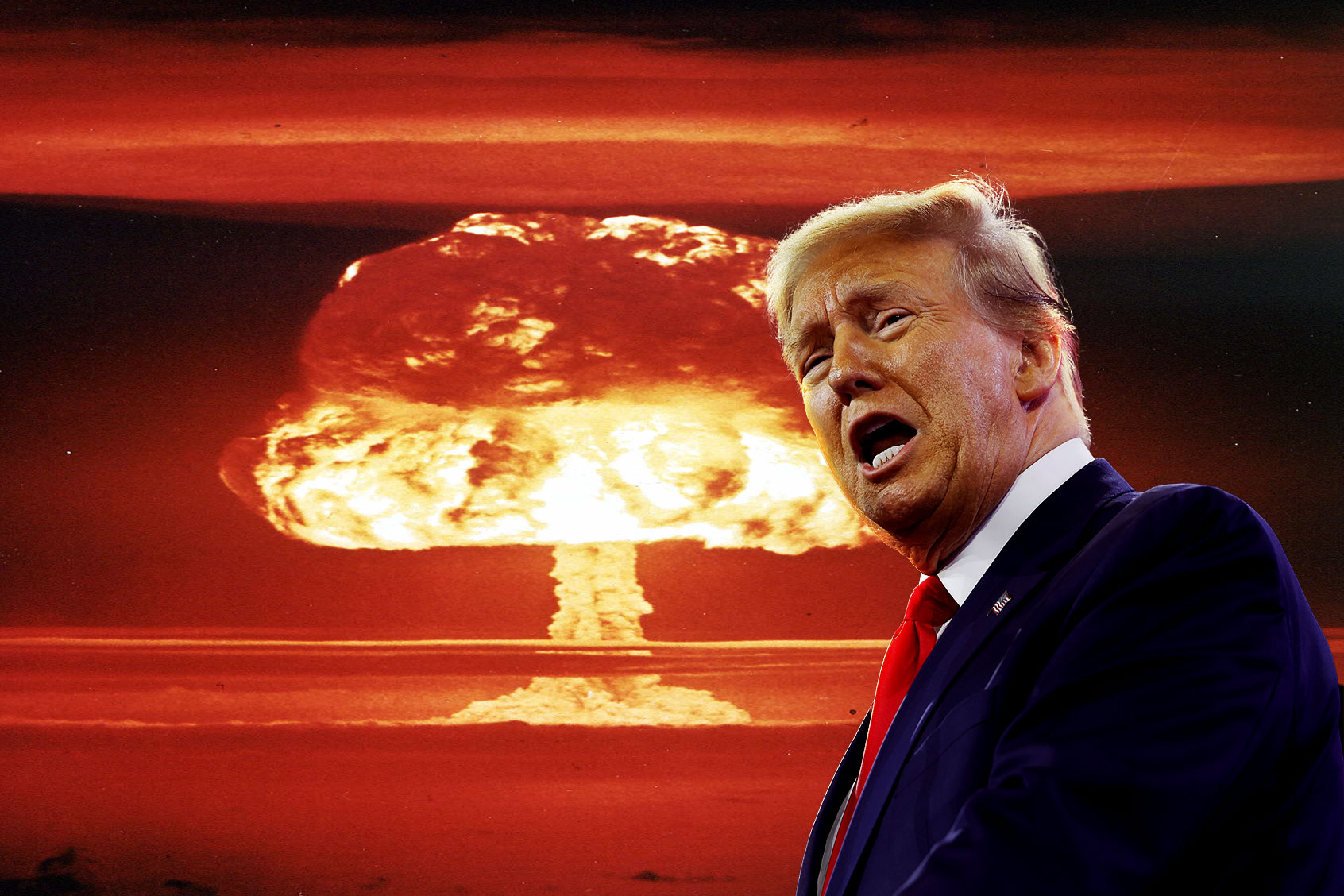World
Trump Proposes Nuclear Testing Resumption Amid Controversy

In a surprising announcement, President Donald Trump declared his intention to resume nuclear testing, ending a three-decade moratorium. This decision came during his return from a trip to Asia and has raised significant concern among international observers and analysts alike. The rationale provided by Trump—that other nations are actively testing their nuclear weapons—has been met with skepticism, as the only country to conduct such tests in recent years is North Korea.
Testing and Tensions in Global Politics
Trump’s statement follows an alarming trend in international relations, particularly concerning North Korea under leader Kim Jong Un. Despite previous diplomatic overtures between Trump and Kim, including exchanged letters and public statements of friendship, North Korea has continued to develop its nuclear capabilities. The last nuclear tests conducted by other nuclear powers occurred in the 1990s, leaving many to question the basis of Trump’s claims.
Amid this backdrop, speculation has arisen about the influences behind Trump’s sudden shift in focus. Some suggest that recent media, such as the film “House Full of Dynamite,” directed by Kathryn Bigelow, may have contributed to his concerns about America’s nuclear arsenal. The film portrays a chilling scenario involving a nuclear strike on the United States, prompting discussions about the consequences of nuclear warfare.
While Trump has often referenced his uncle, Dr. John G. Trump, a physicist who taught at the Massachusetts Institute of Technology, as evidence of his own expertise in nuclear matters, his past statements raise questions about his understanding of the complexities surrounding nuclear arms. In a 1984 interview with the Washington Post, Trump expressed a desire to negotiate an arms agreement with the Soviet Union, despite lacking detailed plans.
The Fallout of Trump’s Nuclear Commentary
Throughout his political career, Trump has made several controversial statements regarding nuclear weapons. During the 2016 presidential campaign, he reportedly questioned his foreign policy advisers about the feasibility of using nuclear weapons, even suggesting that the United States should have a similar arsenal as its predecessors. His comments during a Pentagon briefing indicated a surprising lack of knowledge about the history of nuclear arms control agreements, which have successfully reduced the U.S. nuclear stockpile from over 30,000 warheads to around 3,800 today.
Concerns about Trump’s approach to nuclear weapons are compounded by the current composition of his administration. Defense Secretary Pete Hegseth oversees a team that includes individuals advocating for a more aggressive nuclear policy. Elbridge A. Colby, the Undersecretary of Defense for Policy, has previously recommended a strategic posture that allows for the use of nuclear weapons in response to cyber attacks, further complicating the discourse on nuclear deterrence.
Critics argue that resuming nuclear tests is unnecessary, given the advanced testing systems in place that do not require actual detonations. As noted by Tom Nichols in The Atlantic, while nuclear tests do not enhance U.S. national security, they could escalate international tensions, mirroring Cold War-era practices that ultimately harmed global stability.
As Trump navigates this contentious issue, the implications for U.S. foreign policy remain significant. The potential for increased nuclear testing raises alarms not only within the United States but also among international allies and adversaries. The prospect of Trump making unilateral decisions on such critical matters highlights the urgent need for informed leadership in nuclear strategy.
In conclusion, Trump’s recent statements and proposed actions regarding nuclear testing demonstrate a troubling disconnect between rhetoric and reality. As the world watches, the implications of these decisions could reshape the landscape of international security for years to come.
-

 Science2 weeks ago
Science2 weeks agoResearchers Challenge 200-Year-Old Physics Principle with Atomic Engines
-

 Entertainment1 week ago
Entertainment1 week agoSyracuse Stage Delivers Lively Adaptation of ‘The 39 Steps’
-

 Politics6 days ago
Politics6 days agoHamas Chief Stresses Disarmament Tied to Occupation’s End
-

 World2 weeks ago
World2 weeks agoGlobal Military Spending: Air Forces Ranked by Budget and Capability
-

 Politics2 weeks ago
Politics2 weeks agoNHP Foundation Secures Land for 158 Affordable Apartments in Denver
-

 World1 week ago
World1 week agoBoeing’s Aircraft Production: Assessing Numbers and Challenges
-

 Politics1 week ago
Politics1 week agoNFL Confirms Star-Studded Halftime Show for Super Bowl LVIII
-

 Top Stories7 days ago
Top Stories7 days agoFederal Agents Detain Driver in Addison; Protests Erupt Immediately
-

 Lifestyle1 week ago
Lifestyle1 week agoTrump’s Push to Censor National Parks Faces Growing Backlash
-

 Lifestyle1 week ago
Lifestyle1 week agoRed Bluff High School’s Elli Nolan Named Rotary Student of the Month
-

 Health2 weeks ago
Health2 weeks agoNeuroscientist Advocates for Flag Football Until Age 14
-

 Top Stories1 week ago
Top Stories1 week agoUrgent Search for Suspect Who Exposed Himself to Teen Girl









